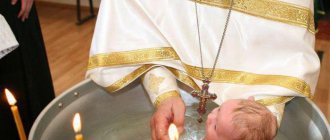Where did it come from and what does the name Stanislav mean?
The meaning of the name of the guys called Stanislavs is revealed through the components of the word - “stani” and “slav”, i.e. “to become glorious”. The origin of the male name Stanislav is Old Slavonic.
Historians differ regarding the interpretation of the literal translation. Some are inclined to believe that what is meant is “glorious”, i.e. appearance. Others are of the opinion that literal glory—honor and recognition—is affected.
The Old Russian name is common in post-Soviet territories, especially in Russia, Poland and Ukraine. In international passports the name Stanislav is written as Stanislav.
Possible derivatives of the name
Full male name - Stanislav. Has several shortened versions.
Stanislav is briefly called by two components of his name. The most common short form of Stanislav is Stas.
There are several diminutive options for it:
- Stasik;
- Stasya;
- Stanya;
- Stason.
The second short form of Stanislav is Slava. Therefore, Slava and Stas are one and the same, but Vyacheslav, Yaroslav, Miroslav, etc. can also be called Slava. The second short version has the diminutive form Slavik.
Church form at baptism - Stakhy, Vyacheslav and Stefan.
The patronymic name is Stanislavovich and Stanislavovna.
Synonyms include Stanislaus, Estanislau and Stanislao. All synonyms of the name have the same translation; differences in pronunciation are associated with the spelling of the name in different languages.
Analogues in other languages
In different countries, the name Stanislav is transformed due to transcription into a different alphabet. The name changes most strongly in languages that do not have identical sounding letters or hieroglyphs.
| Language | Pronunciation |
| Chinese | Sitanisi |
| Korean | Seutanisulaby |
| Japanese | Sutanisurafu |
| German | Stanislaus |
| Spanish | Estanislao |
| Arab | Stanislas |
In most countries that use the Latin alphabet, the name is read in the usual way - Stanislav.
Angel days according to the church calendar
Stanislav has a separate church name - Stakhy. Sometimes children with the name Stanislav are called Vyacheslav or Stefan in the church. Therefore, Stanislav's name day is celebrated on the days of remembrance of the saints and martyrs of the same name. For Orthodox Christians this is April 11, May 5, 7, 8, September 17, 18, November 13.
The name itself is largely Catholic, which is why Stanislav does not have a name day in the calendar.
The nobleman who gave himself to God
Researchers call 1030 the approximate date of birth of the future bishop of the Catholic Church. This happened in the south of modern Poland in the town of Shchepanov (hence the surname Shchepanovsky). Stanislav was the first child in a famous noble family, the head of which from the very beginning saw his son as a clergyman. The young man received his primary education near Krakow, after which he went for further studies to Belgium and France.
Upon returning to his homeland in 1060, Stanislaus was ordained and began serving in the Krakow Cathedral (aka Wawel Cathedral of Saints Stanislaus and Wenceslas). Ten years later, the local bishop died, and a young priest, with the approval of Pope Alexander II and the king, soon took his place. In modern times, this was quite a rapid rise in the church hierarchy.
The newly-crowned bishop gained fame in the area long before his death. Firstly, he did not forget about his homeland Shchepanov and built a wooden church of St. Mary Magdalene there. In addition, Stanislav also took care of expanding the diocese. Thus, it included some territories on the right bank of the Vistula River, including the small village of Petravin. Before his death, its former owner named Petrovin drew up a deed of sale for the sale of the village - thus, the deal with the diocese was legal. But this fact was questioned by Petrovin’s heirs, who accused the church and Bishop Stanislav personally of “illegal occupation” of the village, and called the charter a forgery. The trial has begun. The life of the holy bishop points to a very original way out of the situation, which Shchepanovsky found - he resurrected (literal quote from the text) Petrovin, who died three years ago, and brought him to court, where he confirmed the legality of the sale of lands. No one disputed the right of the diocese to Petravin anymore.
Astrological description of the name
The name Stanislav has extensive symbolism in astrology.
| Type of mascot | Mascot |
| Color | Brown, green, blue-gray |
| Stone | Malachite, rock crystal, chrysoprase |
| Patron planet | Uranus, Mercury |
| Element | Water |
| Plant | Ash, daffodil |
| Animal | Shepherd, camel |
| Zodiac sign | Gemini, Cancer |
| Metal | Silver |
| Number | 2 |
| Day of the week | Monday |
| Season | Winter autumn |
| Important years of life | 15, 23, 35 |
The ideal use for talismans of stones and metals is to make jewelry that is always convenient to carry with you. Plants, elements and animals help create a favorable environment that helps you feel better emotionally and physically.
Literature
- Calendarium Romanum (Libreria Editrice Vaticana, 1969), p. 122
- Marian Plezia, Dookoła sprawy świętego Stanisława. Studium źródłoznawcze, w Analecta Cracoviensa, 1979 (XI) (II wyd.: Kraków 2003).
- Fiorella Simoni, L'immagine di Stanislao di Cracovia nella produzione storico-letteraria tra XII e XIII secolo, w Franciscana - Bollettono della Società internazionale di studi francescani, 2004 (VI).
- Małgorzata Koskowska, Święty Stanisław ze Szczepanowa, Niepokalanów 1997.
- Krzysztof Rafał Prokop, Poczet biskupów krakowskich, Kraków 2004.
The influence of a name on different areas of life
The characteristics of the name for Stanislav are not always optimistic. His lack of restraint and sharp tongue can alienate those around him. But at the same time, he almost never refuses help. The desire to help others balances out rudeness.
Stanislav is not familiar with stinginess and is capable of selfless actions. But, having set a goal, he will not give up on anything - he will go over his head. In adulthood, he has a narrow circle of friends. It is difficult to resist stress, makes mistakes, but quickly recovers and moves on. Ambitious, loved by leaders.
Friends, do you know men with that name? Tell us about the peculiarities of their life, their character traits?
Hobbies and talents
He has a rich inner world and is talented.
Interests include:
- reading;
- chat with friends;
- active sports (running, wrestling, barbell), which helps to release energy.
Communication with friends is one of the important components of character. Stanislav is sarcastic and often goes beyond boundaries in his jokes, but at the same time he is good-natured and longs to find true friends to whom he will be devoted.
Stanislav is good at exact sciences and loves hobbies based on logic.
Work and money
Stanislav is able to work in different areas:
- jurisprudence;
- medicine;
- pedagogy;
- engineering;
- trade;
- acting activity.
Able to become a leader and open a business. As a boss, he is strict and demanding of his subordinates. Changeable moods and stubbornness pose obstacles for Stanislav, but the ability to adapt to circumstances and adaptability help him achieve career success. The desire to occupy a high position is not strongly expressed in the character of a man.
Is Stas obsessed with the idea of getting rich?
Financial status does not play a big role for Stas. Stanislav does not strive to earn a lot. I am inclined to give part of my earnings to charity.
Health
Since childhood, Stanislav has been in average health.
The most vulnerable throughout life are:
- liver - due to the likelihood of alcohol abuse;
- immune system – allergies to medications, infectious diseases, colds;
- nervous system - neglecting rest has a bad effect on Stas’s emotional state;
- bones.
To avoid most possible health problems, Stanislav needs to get plenty of rest, not abuse alcohol, and strive to find inner balance.
Anxiety and suspiciousness contribute more to psychosomatic diseases.
Romantic and sexual relationships
The name Stanislav endows a man with charm and good nature, which attract the attention of women. He pays attention to patient, multifaceted and calm women. Loves praise, narcissistic.
Rarely gets into serious relationships, prefers small novels. If Stanislav sincerely loves, then he will become a reliable support and protection for his partner.
Can it change?
There is a possibility of divorce/separation due to infidelity.
Family life and raising children
For Stanislav, marriage and family become a way to realize himself after going through difficulties. The duality of character is manifested in ostentatious care and hidden despotism. Stanislav clearly defines personal boundaries and does not let his wife and children get close. Secrecy does not disappear over the years. Shows honesty in love; if feelings have cooled, he will not tolerate it and will file for divorce.
Stanislav is gentle with children, he knows how to have fun and love sincerely. He tries to instill in children a love of sports and an active lifestyle. Rarely delves into the details of upbringing, leaving the leading role to his wife. But she always strives to provide children with everything they need.
Girls, who is married to Stas? What kind of husband and dad is he?
Compatibility with female names
This Old Slavonic name has different compatibility with female names.
Favorable compatibility: Varvara, Veronica, Elena, Larisa, Lyudmila, Milana, Oksana, Renata, Rimma, Tamila, Tamara, Eleanor, Julia.
Low compatibility: Antonina, Anfisa, Valentina, Victoria, Evgenia, Zinaida, Marina, Ninel, Svetlana, Sofia, Taisiya.
Famous people
Famous men with this name:
- Stanislav Leszczynski - Polish king;
- Stanislaw Lem - Polish writer, philosopher, science fiction writer, satirist and futurist; his books have been translated into 41 languages and sold more than 30 million copies;
- Stanislav Govorukhin - Russian film director, Honored Artist of Ukraine, public figure;
- Stas Namin - Soviet and Russian musician, composer, producer, artist and photographer, theater and film director, president of the SN Corporation, creator and leader of the group "Flowers";
- Stanislav Rostotsky is a Soviet and Russian film director, actor, screenwriter, teacher, People's Artist of the USSR, author of the films “And the Dawns Here Are Quiet,” “We'll Live Until Monday,” “White Bim Black Ear” and many others;
- Stanislav Mikhailov - Russian pop singer, songwriter, Honored Artist of Russia;
- Stanislav Vostokov - children's writer, naturalist;
- Stas Piekha is a Russian singer, grandson of singer Edita Piekha;
- Stanislav Zhuk - Russian figure skating athlete and coach, master of sports, honored coach of the USSR, champion of the USSR in pairs skating;
- Stanislav Lyubshin is a Soviet and Russian theater and film actor, film director, People's Artist of the RSFSR.
Songs with this name: “Love, which is under current” by the group “Ranetki”, “Papa Stas” by Mikhail Basayev.
The meaning of the zodiac sign in the formation of Stas’s personality
The name Stanislav gives the guy pronounced traits that are equally inherent in everyone bearing this name. But the zodiac sign has a strengthening effect on individual characteristics. Depending on the sign, Stanislav develops a different character.
| Zodiac sign | Features of temperament |
| Aries | Energetic, curious, takes initiative in everything. Active, loves to be in company. Intrusive, prone to gossip. Needs an appreciative listener |
| Taurus | Accurate, painstaking, inquisitive. He picks on details and thoroughly studies the assigned tasks. Courteous with women, enjoys attention, ladies' man. He needs a companion with a similar character who will charm him |
| Twins | Friendly, easy-going character. Sociable and friendly. Avoids serious relationships, loves with her eyes. Knows how to make friends |
| Cancer | Absent-minded, hysterical, has a rich imagination. Hides feelings, has poor self-control when irritated. Selfish character. Successful with women |
| a lion | Charming, polite, authoritarian. He is reserved, not rude, and enjoys the respect of others. Treats your significant other attentively and expects the same in return |
| Virgo | Kind, demanding, pompous. He is looking for profit everywhere. Loyal to his partner, even without deep feelings |
| Scales | Emotional, graceful, liberal. Calm and measured. Faithful to the chosen one |
| Scorpion | Sociable and impressionable. Impulsive, spontaneous. Avoids problems, lives in the moment. Easily gets confused in one's own feelings |
| Sagittarius | Contradictory, passionate and unbalanced. Changes his mind quickly. Relationships don't stand the test of time, looking for variety |
| Capricorn | Aggressive, hardy, authoritarian. Strives to be a leader. Cruel in disputes. Convinced of his own irresistibility. Looking for a pliable and resigned woman |
| Aquarius | Enterprising, restless, mocking. Strives to make the world a better place. Inconsistent in achieving goals. He is a dreamer, which is why he often makes mistakes. Need a down to earth partner |
| Fish | Sweet, straightforward. Has developed intuition. He has good command of the situation and adapts to changing circumstances. A good empath, quickly calculates others, knows how to manipulate |
Name bearers, a question for you: does the description of your zodiac sign match your character? What would you like to add?
Additional information on the topic:
The meaning of the name Yaroslav is the influence on the character and fate of the bearer
The meaning of the name Vadim (Vadik) is the influence on the character and fate of a man
The meaning and origin of the name Demid - how it affects fate and character
Categories
- Category:
- Catholic saints
By the grace of God, one of the first novices of the Society of Jesus was this young Pole, in whom the call of God and the answer of man are so clearly visible. He was a novice with the Jesuits for scarcely ten months and died before reaching eighteen years of age. And yet this was enough.
The main features of his character manifest themselves in his handwriting and several surviving portraits, which depict us as a strong-willed, sensitive, cheerful young man. Although he was from Northern Europe, his hair and eyes were black; He was short in stature, his physique was fragile but strong. And yet his brother Pavel, who was two years older than Stanislav, speaks of him like this: “He was stronger than me.” Contemporaries who observed his life unanimously agreed that he was a gifted student with an aptitude for languages and unusually mature for his age. Stanisław was born in Rostkow, Poland, in December 1550. He was the second son of a wealthy noble family, very influential and respected in the country. Stanislav had a good, happy childhood, which he spent in a deeply religious Christian environment. His father, Jan Kostka, was a powerful man; his mother, Małgorzata-Krystyna, was, as far as we know, a somewhat silent and withdrawn woman who devoted herself entirely to raising six children. Both father and mother wanted their children to receive a good education, opening the way to a political or diplomatic career. Having heard about the college opened by the Jesuits in Vienna, they without hesitation sent their two eldest sons to the capital of the Empire.
In July 1564, two young Poles arrived in Vienna, uncertain about the future, but full of hope. They were accompanied by their servant and guardian Jan Bilinski, who had recently completed his education in Krakow. Biliński's task was to help the boys with their studies, manage their money and make sure that they needed nothing. In Vienna, a new world opened up before them, captivating Paul with its charms; on the other hand, they were surrounded by the atmosphere of the college and the spiritual education that it provided - this was precisely what became the focus of Stanislav’s interests.
The college was founded 13 years ago and has more than 400 students. Many of them came from afar and were boarders, such as the 40 Polish students who were now joined by the Kostka brothers. They shared in every way the way of life of those who were preparing to enter the Society of Jesus. During the three years that Stanislav spent in Vienna, he excelled in the study of grammar, natural sciences and rhetoric. In addition to German, he studied Latin and the basics of Greek. He accepted well the pedagogy of his teachers, based on authority, attention to the personality of each student and the latter's active participation in his own upbringing. Stanislav joined the Brotherhood of Our Lady (today it is called the Communities of Christian Life), whose members received the opportunity for deeper spiritual education and participation in matters of apostolic ministry. During these years, Stanislav chose Fr. Nicholas Doni and became a great friend of the young Jesuit scholastic Albert Tobolsky, one of his teachers.
When, at the beginning of 1565, the Jesuits were to return to the emperor the building that he had lent to them as a house for boarders, a decisive change occurred in Stanislav's life. Pavel and their guardian Bilinski found comfortable housing not far from the college in the house of a certain Mr. Kimberker, a Protestant. This caused Stanislaus great suffering, as the owner of the house would not allow the priest to enter and give Holy Communion to Stanislaus while he was ill. Even then, the Holy Eucharist was most important to Stanislav.
However, the main problem was that a conflict arose between the two brothers, which caused great suffering to the younger one. With the connivance of his mentor and under the influence of two older Polish friends, Pavel decided to have fun, fully enjoying life in the capital of the Empire. Stanislav preferred other values: experience of communication with God, which he began to acquire too early for his age; his penchant for prayer and service to others, his love of the Eucharist and veneration of the Blessed Virgin were the complete opposite of Paul's beliefs. When Pavel, together with his friends, reproached Stanislav and mockingly called him a “Jesuit,” the younger Kostka did not give up; on the contrary, he became stronger in his convictions and said directly: “I was created for more.”
Pavel felt that his brother’s life was a reproach to his own behavior, which was becoming more and more dissolute, and began to often get into fights with Stanislav. During one of these fights, the latter exclaimed: “I will have to move away from here, and you will be responsible for this to our parents.” Paul replied: “Go wherever you want, and leave me alone.” The thought of escape began to ripen in Stanislav’s mind.
However, he had a more serious reason for leaving Vienna. He felt that Christ was calling him to join the Society, but the Jesuits were unwilling to accept him without the consent of his family. Stanislav had already “tested the waters” and knew that his father would never give permission for this. Then he resorted to the help of the papal legate, Cardinal Commendone, asking him to intercede for him with his mentors, but, apparently, no one wanted to help him, the only thing he heard were the comforting words: “You are still very young”; “Learn first, and then your parents will change their minds...” But none of this satisfied him. He alone understood that his “yes” could not be postponed “for later.”
Kostka's early biographers devoted too much attention to certain phenomena that took place in his life and are not easily interpreted. Several times he was seen so deep in prayer that he seemed dead. Perhaps this was due to his enormous ability to concentrate, and not to supernatural reasons. A more strange event took place in December 1565. Bilinski spoke about this when, in 1603, he was called as a witness to participate in the process of beatification of the young Pole: “When Stanisław became seriously ill in Vienna, he (Biliński) stayed awake at his bedside for seven nights. On one of the nights of this vigil, Stanislav gestured to him to kneel down in order to honor the holy communion, which was given to him through the angel by St. Varvara. Later, Stanislav himself, in the novitiate, said that during his illness in Vienna, he saw the Virgin Mary and Child, and She asked him to join the Society of Jesus. And Stanislav, in fact, recovered and joined the Society. What really happened? The Church does not comment on the authenticity of the visions, but tries to carefully investigate the mental health of those who appear to have had mystical experiences. Stanislav was a normal, balanced young man, and it is quite possible that God communicated with him in visions as a reward for his generosity. Be that as it may, the main thing in Stanislav’s life was not visions, but faith in his ideal and an inexhaustible desire to achieve it. This is reality. Visions were not an obstacle for him, but a stimulus on the path to a true calling and could well be a sign that the grace of God can do extraordinary things even in the soul of such a young being.
So we come to Sunday, August 10, 1507. The Kostka brothers had completed their training and were ready to go home. However, Stanislav decides to go to the Provincial of the Jesuits to ask him for permission to join the order. He gets up early and goes to the liturgy, saying that he should not be expected for breakfast, since he is invited. Then he goes to the college for a letter of recommendation, which Fr. prepared for him. Francisco Antonio, and goes to Augsburg. Here Stanislav appears before us in the image that is most characteristic of him - the image of a traveler. He is not yet 17 years old; he leaves everything, breaks with his past, and takes flight to say that “yes” that he can no longer keep within himself. In 15 days, he crosses the territory of modern Austria from east to west and ends up in Bavaria: completely alone, on foot, he covers more than 600 kilometers. He sleeps in the fields and eats what is served to him. Meanwhile, Pavel and Bilinski are worried, they are looking for him at the college and in other places where he may end up; then, the next day, they decide to “get into a four-wheeled carriage and go on a search.” But it’s all in vain, the fugitive is already out of reach. Pavel returns to Rostkov alone, and his parents are deprived of any news about their second son for several months.
In Augsburg, Kostka is received well, offering him to stay for a few days. The provincial superior is located in Dillingen. Kostka immediately goes to this city. The meeting turned out to be a meeting of two giants. One of them was an experienced fighter for the faith - traveler, preacher, tireless writer - St. Peter Canisius, superior of the Jesuits of Germany and papal legate. The second was just a candidate, tired from the road, exhausted, with a letter of recommendation in his pocket. But since both were saints, they understood each other. Canisius saw Stanislav's merits and promised that he would be accepted into the Society. In the meantime, he could relax a little at Dillingen's college and help a little with washing the dishes...
Like the Provincial, Stanislav decided that it would be better to go to Rome, although this meant that he would have to walk another 1,200 kilometers. Canisius’s letter to the Superior General is very important: “Stanislav, Polish nobleman. He is a wonderful, intelligent young man, whom our fathers in Vienna did not allow into the Society, fearing the hostility of his family... Here he underwent tests for some time, living in a college. He faithfully discharged the duties assigned to him and showed perseverance in his calling. He really wanted to be sent to Rome to be away from any interference from his family... We expect very, very high things from him.”
The journey was undertaken in the company of two other candidates: Giacomo Levanzio from Genoa and Fabrizius Reiner from the Netherlands. It took them exactly a month to get from Munich to Rome: from September 25 to October 25, at an average speed of 35 kilometers per day - slightly slower than when Stanislav traveled alone. They cross the Alps and Apennines, arrive in Florence and finally in Rome. The physical stress was enormous, and Stanislav constantly waged an internal struggle with himself.
General Superior, St. Fransico Borgia is another great man who renounced his titles and titles to take on the cassock of a Jesuit. He was later elected as the third superior general of the order. He greets the three young men in a friendly manner and, after a few days of rest, accepts them into the Society. Stanislav's name was recorded in the book of the novitiate on October 28, 1567.
Stanislav's comrades unanimously testify to the joy that radiated from him and was reflected in all his actions. This, without a doubt, was the joy of satisfaction experienced by a person who has been searching for a long time and has finally found what he was looking for, the joy of finally achieving a goal. Although he suffered due to the break with his family, he never showed his sadness. The letter he received from his father is indeed very stern: “With your thoughtlessness you have dishonored our family, you have tarnished the honor of the glorious house of Kostka. You had the shamelessness to travel throughout Germany and Italy like an ordinary beggar. If you persist in this stupidity, then let your foot no longer set foot on Polish soil, because I will find you wherever you are, and instead of the gold chains that I have prepared for you, you will find chains of iron, and you they will be wrapped in them in a place where you will never see sunlight again.”
Stanislav probably thought sadly: “He treats me like a small child.” And he only answered: “I hope that the hour is not far off when I will again find your fatherly love, which you have given me so far.”
Today, as before, the novitiate is a place of peace and struggle. Here young people make their final decision, responding to the Lord's call to follow Him and imitate Him in the struggle for the perfection of the world. Kostka did not find anything new here. His real novitiate was his life in Vienna, he had already said “yes” to Christ and “no” to everything else. For a whole month he felt at ease in his familiar surroundings, performing the “Spiritual Exercises” of St. Ignatius, receiving instructions from a more senior novice, Claudius Acquaviva, a man who 13 years later became Superior General of the Society and remembered Stanislaus fondly as his “comrade in arms.”
The months passed quickly; this paradise was not the last stage of his short journey. Mentor of novices, o. Giulio Facio, and his comrades, who included Blessed Rodolfo Acquaviva, who later died a martyr in India, his Polish friend Stanislav Warszawicki and Stefano Augusti, who helped him improve his Italian, unanimously recognized that Stanislav performed everything to perfection. Later his spiritual mentor, Fr. Ruits will say in one of his sermons that, in his opinion, Stanislav never committed a single grave sin. Was it easy for the young Pole? We are convinced that no. The grace of God requires our cooperation, and Stanislav’s character was not “naturally good.” Here are some conclusions of a German graphologist who analyzed his letter in 1957, not knowing that it belonged to the hand of a saint: This letter indicates the maturity of a man of 30-35 years old. His demeanor is impulsive and aggressive; he is clearly critical; he has difficulty submitting to others and unceremoniously breaks off relationships if things don't go well. The letter testifies to the intense struggle between feeling and reason, to powerful sexual inclinations that are under strict control.
This conclusion, in essence, coincides with another made by the Italian graphologist: Independent spirit; expresses himself concisely and intelligently, choosing the right moment for this. The will that controls sexual instincts. “They called him an angel, but in reality he was a man with powerful sexual stimuli, who strived to be as pure as an angel.” A pride that constantly makes him fight for primacy in everything.
His long journey was soon over. His death, like his life, was surprisingly quick and easy. August 1568 began in Rome with the usual heat, and Stanislav felt unwell. On the 5th, he and a friend visited the image of the Blessed Virgin in the Basilica of Santa Maria Maggiore, which he liked so much. “How can I not love Her if She is my Mother?” - he said that day. On the 9th he wrote a letter to the Blessed Virgin, asking Her to take him away so that he could celebrate the Feast of the Assumption in Heaven, and this letter was in his pocket when on August 10 he received Holy Communion. Did he feel that he was sick? Was it hard on your soul? Or did he feel, by one of those mysterious previsions which visit saints, that his mission was completed, while for others it was just beginning? On that day, exactly a year after his flight from Vienna, he suffered from a severe attack of fever. We don't know the reason. Was it a lung disease? Was it relapsing fever or malaria, which was very common in Rome at that time? The disease progresses quickly, doctors cannot do anything; his comrades are unable to believe it, but Stanislav dies. On the 14th, he asks for unction and dies peacefully just a few hours before the day of August 15, the feast of the Dormition of the Virgin Mary. A few days later, his brother Paul arrives in Rome to obtain an order from the Pope or another official to send him to Poland. Too late. He could only cry at the grave of his brother, whom he valued so little during his life.
In the small church of Sant'Andrea al Quirinale, a masterpiece of the great architect and sculptor Lorenzo Bernini, a marble sarcophagus contains the ashes of a young man who, at the age of 17 years and 8 months, achieved the high goal that he saw before himself when he said: “I was born for more." By canonizing him as a saint, the Church made him an example for young people. Stanislav Kostka answered “yes” to the Lord who called him to serve Him. And this “yes” is priceless, because St. Stanislav did not change his word; because this “yes” was said joyfully and with all my heart; because it was said by a man who was only seventeen. He was canonized by Pope Benedict XIII in 1726.
Memory 13 November.
G. Botero, SJ
https://www.jesuit.ru/history/jesuits/Kostka.htm
ARCHIVE NEWS 2011-2013
Spelling a name
In the male name Stanislav, each letter corresponds to a certain character trait:
- S – rigor, uncompromisingness;
- T is a multifaceted personality, capable of bringing a lot to life;
- A – activity, energy, desire to participate in collective activities;
- N – criticality, pickiness, diligence;
- And - arrogance, self-esteem, care about appearance;
- L – developed imagination, one’s own view of beauty;
- B – means emotions, optimism and desire for praise.
Notes
- ↑ 1 2 (not translated to mul)
Evolución del Calendario Romano postconciliar (1969–2014) (pl.) //
Ephemerides Liturgicae: commentarium trimestre de re liturgica
- 2015. - T. 129. - P. 439. - ISSN 0013- 9505 - Calendarium Romanum (Latin): Ex decreto Sacrosancti Œcumenici Concilii Vaticani II instauratum auctoritate Pauli PP. VI promulgatum. Editio typica - Civitas Vaticana: 1969. - P. 25.
- Bernhard Tanner. Polish-Lithuanian embassy to Muscovy
- Henryk Sienkiewicz. Crusaders. Volume 2, part two
Characteristics in numerology
In numerology, the secret of the name Stanislav is revealed through the number 2.
It corresponds to:
- good-natured disposition;
- anxiety;
- perseverance, determination, responsibility;
- creative potential;
- self-interest;
- quick change of mood.
The Old Russian name in numerology personifies a diligent and hardworking person. He is able to work for a long time for results. Poor management. Thanks to his good nature, he is able to maintain a wide circle of acquaintances. Anxiety and worry over trifles provoke uncertainty.









